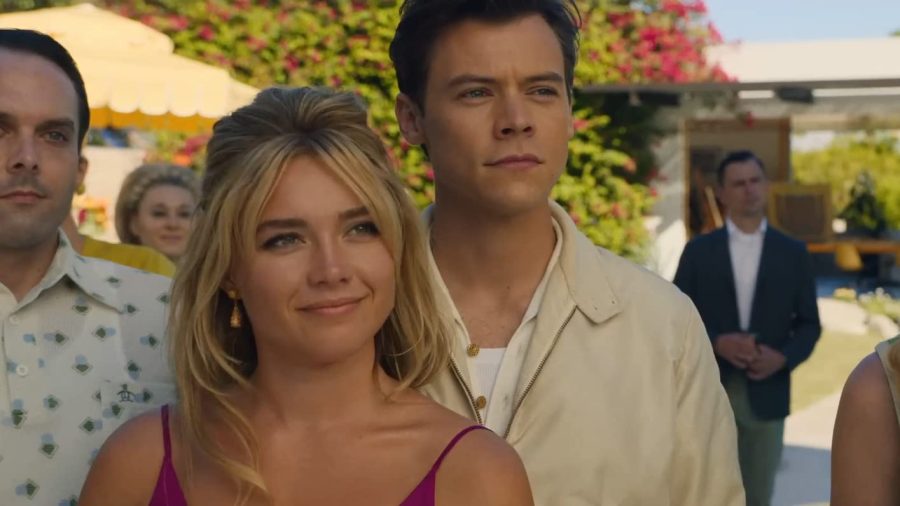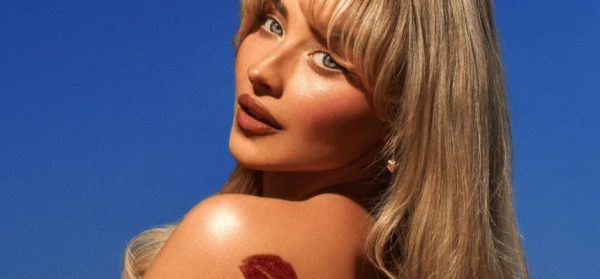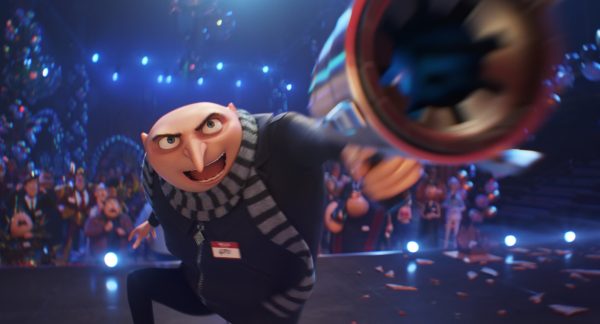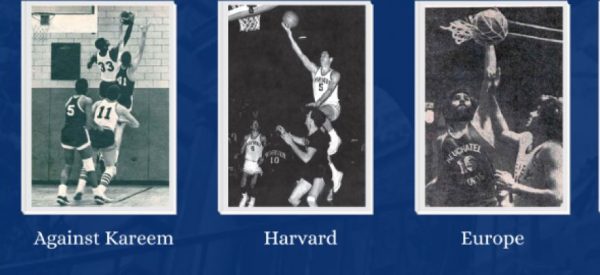‘Don’t Worry Darling’ doesn’t live up to its potential, despite notable leads and director
In 2019, “Booksmart,” Olivia Wilde’s directorial debut, was released to critical acclaim. Hailed as one of the smartest movies of the year, “Booksmart” showcased Wilde’s unique and exciting voice, and her ability to connect with the modern generation. Any subsequent release from her was bound to catch people’s attention.
And it did. When Wilde announced that she would be directing a new thriller called “Don’t Worry Darling,” the media was buzzing. Soon, big name actors and actresses signed onto the project, and the movie looked like a beacon of hope in a post-pandemic world. Add to that the additional drama surrounding the project in the last few months, fueled by supposed conflict behind the scenes, then it’s no wonder “Don’t Worry Darling” is the most talked about film of 2022.
The movie is primarily set in a 1950s utopian town called Victory, and centers around the mental turmoil housewife Alice (Florence Pugh) faces as she starts to question her seemingly perfect world, including her charming husband Jack (Harry Styles) who, like the other men of the town, spends his days working at the mysterious Victory Headquarters, as well as the utopia’s cult leader, Frank (Chris Pine). The first two-thirds of the movie are spent depicting a decidedly worried Alice (thankfully, this is an emotion Pugh is known for conveying quite well) as she slowly notices a series of strange events happening around her.
The frustrating thing about this movie is that it had the potential to be truly poignant; its messaging about escapism in the modern world is one that is rarely touched on in such a thoughtful, unobtrusive way. But what drags this messaging—and the rest of the movie’s elements, for that matter—down is the film’s half-baked plot.
Consider those strange events happening around Alice. They’re a big part of the movie, yet the reasoning behind their occurrences is never fully explained. There were other head-scratchers – seriously, what did Jack do at his job? – that could have been fixed with a simple script revision. I personally left the theater with a multitude of questions, and not the good ones about motifs and symbolism, more of inquiries regarding basic events in the plot whose meanings were left ambiguous.
That’s not to say the film wasn’t intriguing and thrilling in the moment. The twists and turns in its third act were genuinely shocking, and the impeccable cinematography as well as the chemistry between Pugh and Pine, and to a certain extent, Pugh and Styles, made the film more than enjoyable to passively watch. For those wondering, Styles was capable of of holding his own among such exceptional talent, but he didn’t offer much more than that.
This movie does not live up to its extreme hype and scrutiny. But it is perfectly fine nonetheless. No need to worry, darling.
Leila Brady is a senior at Pelham Memorial High School. She is captain of the varsity field hockey team, and is a member of the varsity lacrosse and winter...












